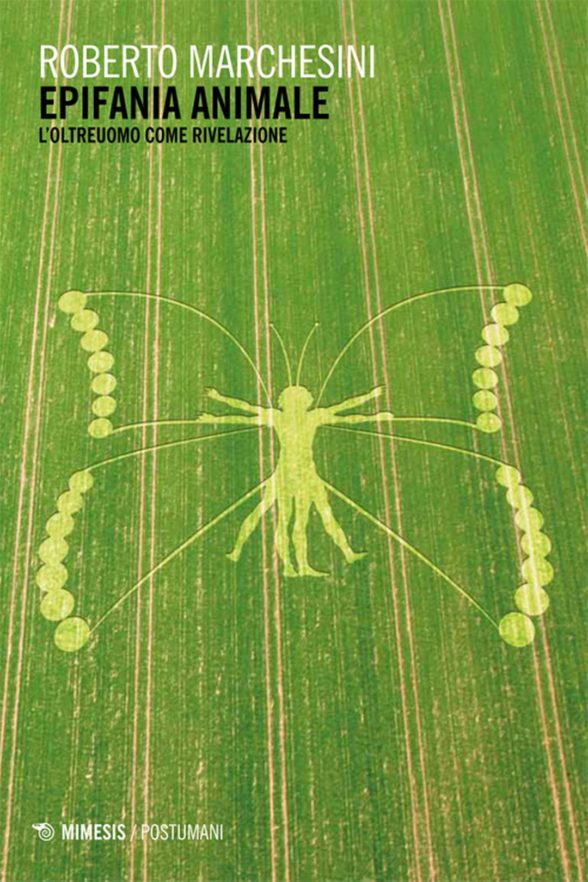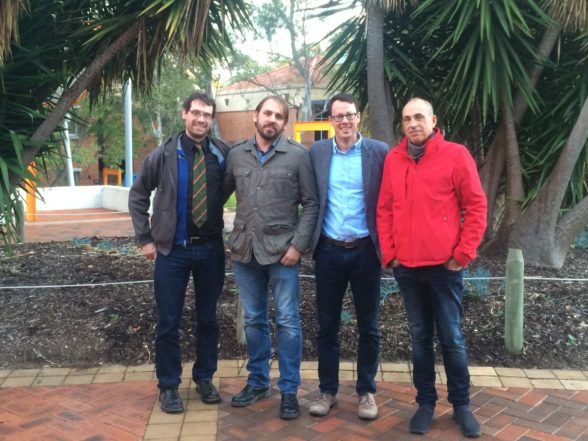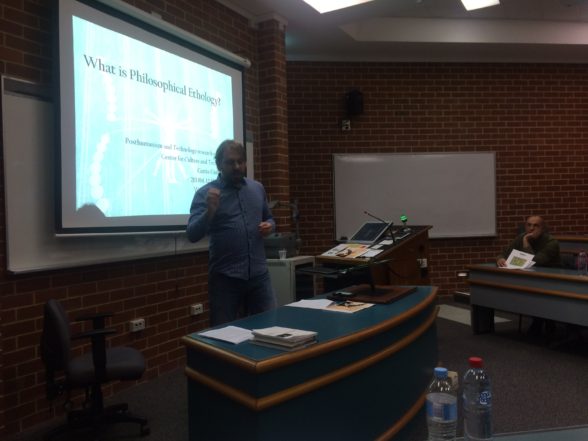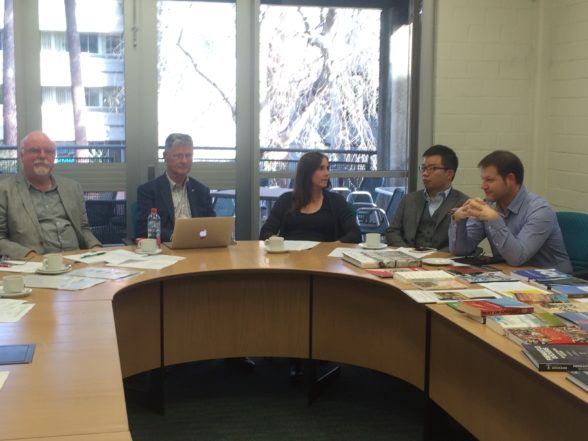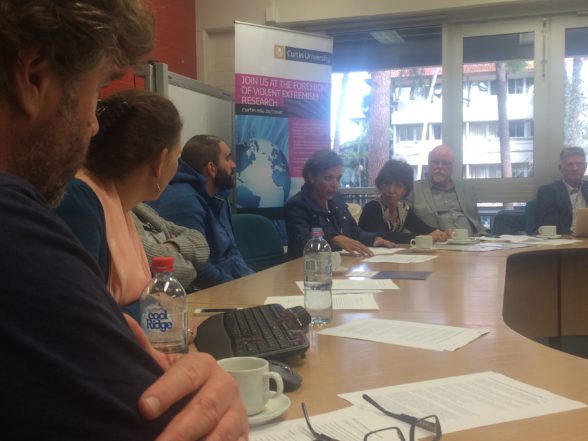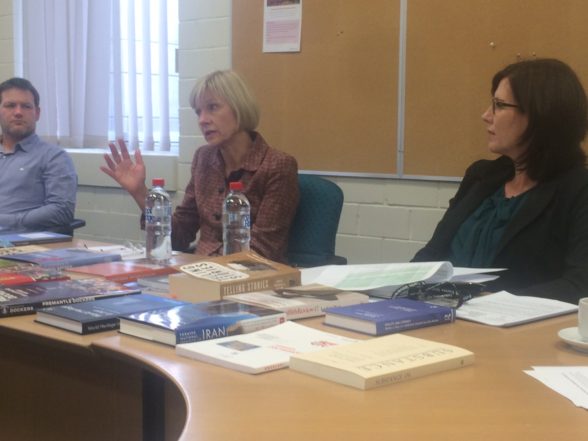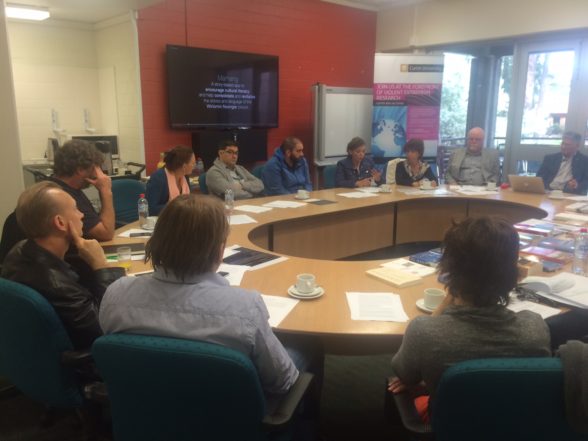2015
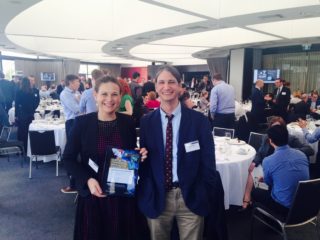
CCAT project Knowledge Unlatched wins Innovation in Education Award
September 2015
CCAT Director A/Prof. Lucy Montgomery and CCAT associate member Dr. Frances Pinter had great success at Curtin University’s Curtin Commercial Innovation Awards last week, with the CCAT project, Knowledge Unlatched, winning the Innovation in Education Award.
At the award presentation ceremony at the State Reception Centre in Kings Park last week, Lucy Montgomery (pictured left, with CCAT researcher Alkim Ozaygen at the award ceremony) accepted the prestigious award in recognition of the success of Knowledge Unlatched’s pilot program.
Knowledge Unlatched is a novel mechanism for ensuring that specialist academic books are more widely read by consolidating demand from libraries, offering publishers an up-front fee to cover the origination costs (or fixed costs) of a book provided they agree to make digital versions available free of charge under an open access licence. A small pilot has been run successfully and the next step is to engage more publishers and libraries and scale up the operation.
See the above video created by Curtin University for the purpose of showcasing Knowledge Unlatched’s success at the awards ceremony!
Congratulations, Lucy and Frances!
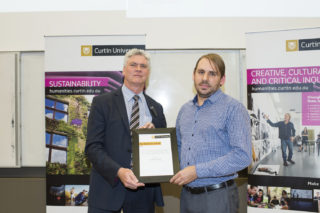
CCAT’s Matthew Chrulew stars at Humanities Research Awards
September 2015
CCAT’s research fellow Dr. Matthew Chrulew received extraordinary recognition for his research at Curtin’s recent Humanities Research Event.
Dr. Chrulew won the $1,500 Humanities Research & Graduate Studies Journal Article of the Year Award, for his article ‘The Philosophical Ethology of Dominique Lestel’ published in the prestigious journal Agelakai. (19:3, 2014, pp. 17-44).
Dr. Chrulew was also the inaugural winner of The Niall Lucy Award, honouring the life of CCAT’s late founding director Prof. Niall Lucy. Dr. Chrulew won the $5, 000 award for his excellence of scholarship across an impressive body of work on Philosophical Ethology, which included a substantial range of original articles, translations into English of the work of leading thinkers, interviews with these scholars, and all published in high-visibility, top-ranking international journals, over the past year.
As the chair of the award’s judging panel, D/Prof. John Hartley noted:
“It isn’t often that an emerging scholar and theorist of Matthew Chrulew’s calibre and potential turns up. This is someone who promises to be a world leader in his field. He is a driving force behind a new interdisciplinary enterprise: one that applies the tools of cultural and critical theory to the science of animal behaviour, with the aim of intervening in debates about the environment, extinction, climate change, and the ethics of the human/animal relationship.
It is an enormously impressive body of work, with clear thematic coherence and deep engagement with important philosophical questions. It is ambitious, too, leading the development of a new field of inquiry of increasing global importance”.
The Humanities Research and Graduate Studies Research Event also gave CCAT the opportunity to showcase its research to the rest of the Faculty. Dr. Chrulew also represented CCAT by taking part in the ‘3M research presentations’ on the day (modelled on the popular 3 minute thesis presentations), discussing the ‘Woolly Mammoth’.
Dr. Chrulew is the Program Leader of CCAT’s research program Posthumanism & Technology. A big congratulations to Matthew on such outstanding recognition!
Top Image: Acting DVC Research Brett Kirk presents Dr. Matthew Chrulew with The Niall Lucy Award.
Knowledge Unlatched nominated for 2015 People’s Choice Awards
September 2015
 CCAT’s Director A/Prof. Lucy Montgomery and associate CCAT member Dr. Frances Pinter are honoured that Knowledge Unlatched has been nominated for a 2015 People’s Choice Awards by Knowledge Commercialisation Australasia.
CCAT’s Director A/Prof. Lucy Montgomery and associate CCAT member Dr. Frances Pinter are honoured that Knowledge Unlatched has been nominated for a 2015 People’s Choice Awards by Knowledge Commercialisation Australasia.
Knowledge Unlatched is a not-for-profit Open Access publishing initiative. CCAT has strong ties to the project, with our A/Prof. Lucy Montgomery role as Knowledge Unlatched’s Deputy Director. Knowledge Unlatched’s founder Dr. Frances Pinter also received an Honorary Doctorate of Letters from Curtin University earlier this year, for her leadership in the open access and publishing fields.
CCAT’s involvement in Knowledge Unlatched is one of the outcomes of our New Models in Publishing Research Program. Lucy Montgomery helped to design and carry out the 3-year global Knowledge Unlatched pilot of a library consortium model enabling Open Access for books. This pilot involved around 300 libraries from 24 countries, as well as 13 recognised scholarly publishers.
The Knowledge Unlatched pilot was a major success.
It demonstrated the cost-effective, sustainable model for making specialist scholarly books Open Access at scale is possible. The 24 books in the pilot collection were downloaded 30, 000 times by readers in 165 countries in their first year online. This compares to traditional scales of ~300 copies generally made by publishers for this type of publication over the lifetime of the book. The pilot has impacted on scholarly publishing businesses by dramatically increasing awareness of the financial viability of Open Access publishing for success.This is not the first prestigious recognition for Knowledge Unlatched. In 2014, KU received the 2014 International Federation of Library Associations/Brill Open Access Award.
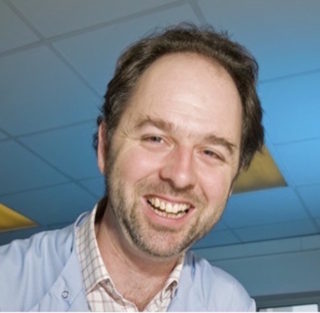
CCAT Welcomes Professor Cameron Neylon
August 2015
CCAT is delighted to announce the appointment of distinguished Open Research thought-leader Cameron Neylon as Professor of Research Communications.
Over the past decade Neylon has built an international reputation as one of the leading thinkers, technologists, and strategists on open approaches in scholarly communication and research more broadly. He is a highly respected Open Access activist: combining a rigorous background in empirical science with an interest in mechanisms for change across global systems for knowledge creation. Neylon is a highly sought-after writer, speaker and advisor to companies, funders, research institutions, and governments on the challenges of research management.
The central thread in Neylon’s research and scholarship is how an understanding of systems and their emergent properties can be combined with design approaches to build tools that enable maximally effective interventions. This has frequently taken the form of an information analysis that identifies a point of maximum leverage, followed by tool building, information gathering or coalition building to attack that point.
Neylon is collaborating with CCAT colleagues on research exploring the growth, deployment and use of knowledge in global-digital networks. This includes exploring how culture-made groups can both disrupt and drive economic and cultural discovery, imitation and innovation.
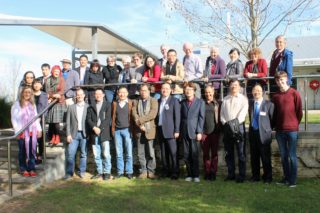
China-Australia Writing Centre Launch
August 2015
CCAT members were delighted to be involved in the launch of the China-Australia Writing Centre, a joint initiative between the School of Media, Culture and Creative Arts, Curtin University, and Fudan University, Shanghai, China.
As Acting PVC of Humanities Steve Mickler noted, “This is a very important partnership with one of China’s very top universities, and it follows almost five years of collaborative activities between us, involving our Creative Writing program, Curtin Journalism, and CCAT-MCCA’s Culture +8, New Times, New Zones project under the leadership of Professor John Hartley“.
To read more about the launch of the new centre, please read Curtin’s press release here.
The launch was followed by a welcoming symposium held in Margaret River.
Pic: CCAT members Prof. Kim Scott and Dr. Henry Siling Li, with other symposium attendees, Margaret River. Photo courtesy of Julie Lunn.
CCAT Research Symposium Event: What is Philosophical Ethology?
July 2015
On Wednesday 22nd July, CCAT Research Fellow and member Dr. Matthew Chrulew convened a research symposium and a round table discussion relating to the topic of Philosophical Ethology.
As Dr. Chrulew notes in the abstract for the event: “Ethological research of the last few decades has taught us that “culture” and “technology” are not the unique possessions of humankind. Long-term observational studies of animals from chimpanzees to Arabian babblers have revealed among nonhuman societies a great variety of behaviours and mediations irreducible to genetic or environmental determination. These empirical findings challenge many long-held assumptions regarding the mechanicity of animal life and the exceptionality of human worlds.
Yet their consequences have rarely been accounted for, let alone rigorously drawn out, among the humanities and social sciences. This half-day symposium will take a step in this direction by asking: what is philosophical ethology? Three special issues of Angelaki: Journal of the Theoretical Humanities have been devoted to introducing this field, presenting the work of important thinkers: Dominique Lestel, Vinciane Despret and Roberto Marchesini (forthcoming). In this symposium, speakers working at the intersection of philosophy, anthropology, cultural theory, environmental humanities and animal studies will explore the reconfiguration of concepts of humanity and animality that follows from the ethological revolution”.This research event allowed presentations by some of the international experts in this field: Roberto Marchesini (Director, Scuola Interazione Uomo Animale and Centro Studi Filosofia Postumanista, Bologna, Italy), Brett Buchanan (Director, School of the Environment and Chair, Department of Philosophy, Laurentian University, Canada), Jeffrey Bussolini (Associate Professor, Department of Sociology, Anthropology, and Social Work, City University of New York, USA), as well as our own Matthew Chrulew (Research Fellow, Centre for Culture and Technology, Curtin University, Australia).
The event was a very successful outcome of one of CCAT’s main research streams, Posthumanism and Technology.
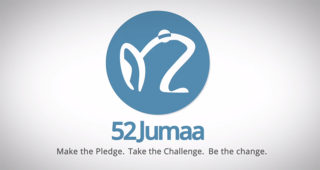
Curtin students take 2nd prize in US State Department global competion
June 2015
A team of Curtin Humanities students, under the leadership of CCAT Adjunct Professor Anne Aly, as part of CCAT’s research program COVE, have been successful in a US government sponsored global competition.
As Anne reports: ‘Team Curtin, comprising students from across Humanities, has been selected as one of three teams to proceed to the finale of the P2P Challenging Extremism Global Competition. The only Australian team to participate out of 23 Universities worldwide, the Curtin team developed an App called 52 Jumaa which is aimed at steering young Muslims away from negative violent extremist influences through the creation of positive online communities around a series of 52 weekly challenges to make positive changes”.
The Curtin team travelled to Washington on the 4th June, to present their idea to the US Department of State, which sponsored the competition for the White House.
They received 2nd place–an outstanding recognition of all their incredibly hard and important work.
Further information about their success is available in the Curtin news site here.
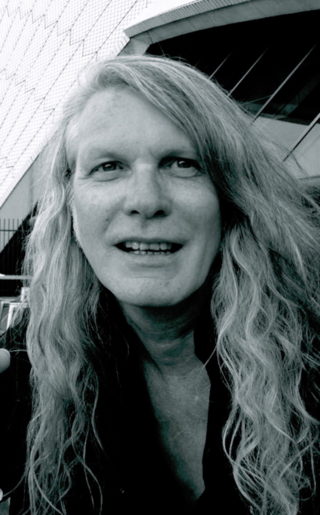
Curtin announces The Niall Lucy Award for late CCAT Founding Director
June 2015
To mark the one year anniversary of the death of CCAT’s founding director Professor Niall Lucy, Curtin’s School of Media, Culture and Creative Arts announced an annual award in his honour.
The inaugural Niall Lucy Award is to be awarded to a distinguished publication in line with Niall’s intellectual stature and cultural passions, for excellent achievement in any area of: (i) Critical and Cultural Theory (ii) Media Scholarship, or (iii) Popular-Music Scholarship.
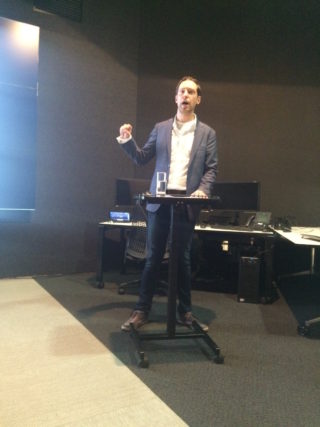
CCAT hold Public Lecture on “Big Data”
June 2015
On Wednesday 3rd June, CCAT hosted a public lecture by Dr. Daniel Trottier on “Big data and society: between empowerment and surveillance”.
As Dr. Trottier noted: “Big data is frequently touted as an asset to health care, so-called ‘smart’ cities, and interdisciplinary research. Yet these same processes and technologies are also employed to target individuals, often based on the rhetoric of securing against terror attacks, child exploitation, and even bad parking. This lecture considers the use of social media data in particular to profile and monitor citizens.
Dr. Daniel Trottier’s attendance as a CCAT guest was co-sponsored by The ARC Centre for Excellence for Creative Industries, CREATEC at Edith Cowan University, and The Pawsey Supercomputing Centre.
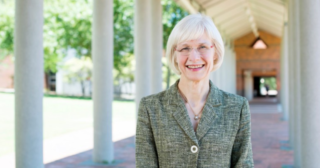
Curtin Vice Chancellor Deborah Terry meets with CCAT researchers
May 2015
On Thursday 21st May, Curtin’s Vice Chancellor Deborah Terry accepted an invitation to meet with researchers as The Centre for Culture and Technology. CCAT welcomed the opportunity to informally showcase our research, and discuss our research strengths and focuses, within the context of Curtin’s strategic initiative of developing as a global research key player.

